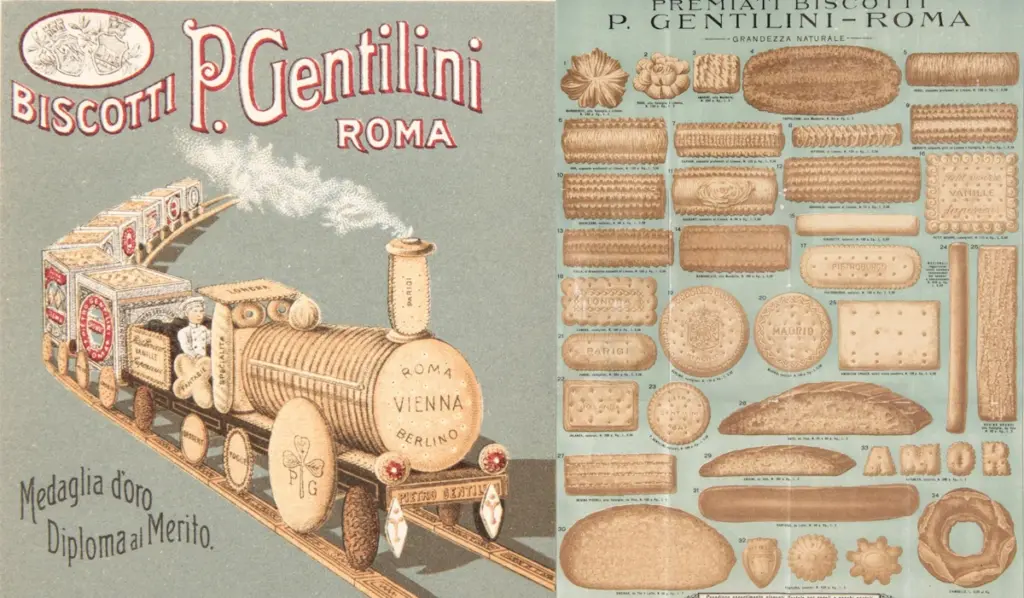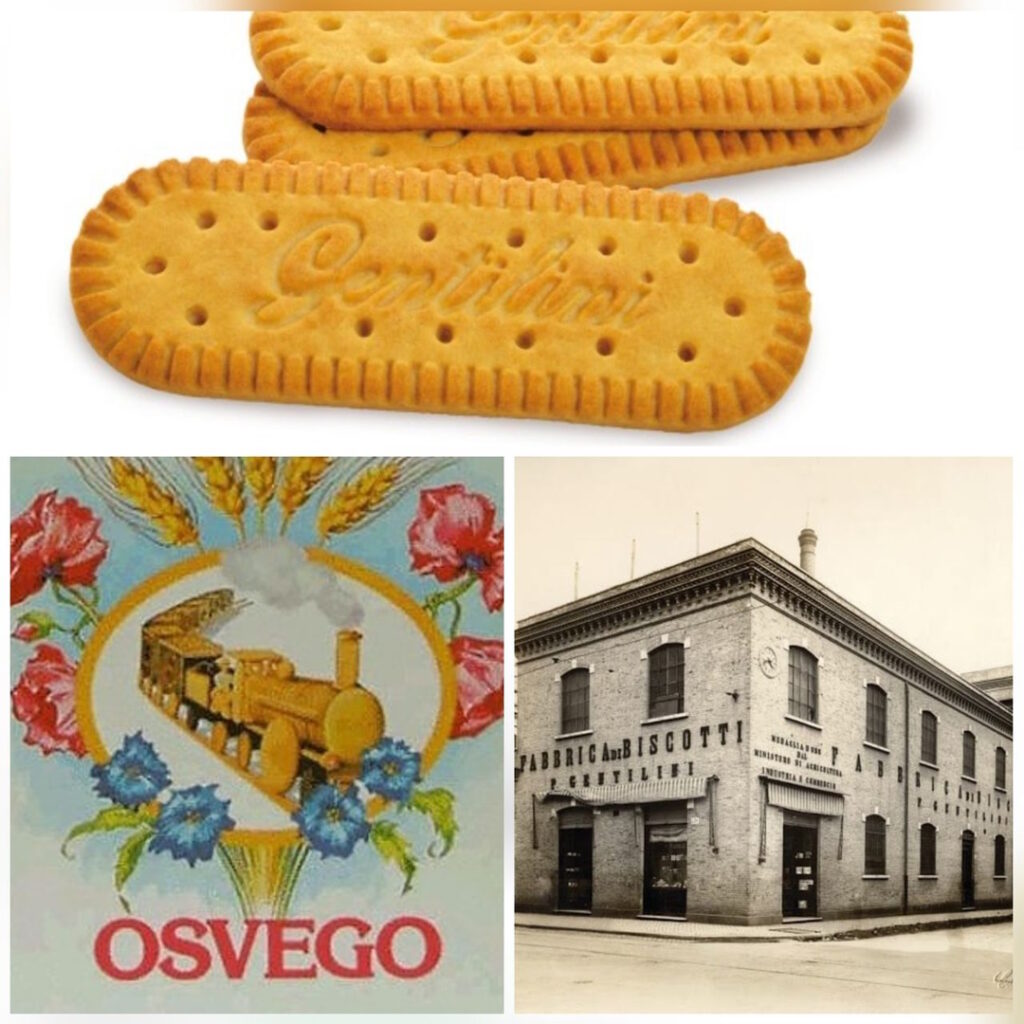
For generations of Romans and others, the name ‘Osvego‘ is a (very tasty) synonym for biscuit, a great classic on the breakfast table. Again, we are dealing with a product that is the fruit of Made in Italy talent and creativity. It was created more than 130 years ago from the idea of Pietro Gentilini, founder of Biscotti P. Gentilini.
English recipe for an all-Roman biscuit
An Emilian entrepreneur born in 1856, Gentilini had emigrated to Latin America and London at a young age to learn the art of dry confectionery. In fact, this type of craft was already well advanced in Britain at the time to encourage the middle-class habit of accompanying the inevitable five o’clock tea with biscuits. This ritual was almost unknown in Italy.



Gentilini learnt and customised the tea biscuit recipe according to Italian taste, adding vanilla and honey, and achieved a unique product, which he named Osvego.

A name that comes from afar
But why did Pietro choose this name – not very evocative and certainly without an Italian flair – for the biscuits that made his company successful? To find out, we must take a leap back in time and far away in space to when Native Americans introduced English settlers to a particular plant, the Monarda Didyma, which grew near the mouth of the Oswego River. Native Americans used it to create a mint-flavoured infusion. The settlers loved it so much that they ensured it was passed on to their loved ones left behind in the motherland. Oswego Tea soon became an excellent substitute for traditional Black Tea in England, and a specific biscuit was created to accompany its unique flavour.
It was 1890 when Pietro Gentilini founded the ‘Biscotti Gentilini‘ factory and opened its historic headquarters in Via Tiburtina in Rome, a red brick building. Since 1925, the company has had the futuristic locomotive made of biscuits as its logo. The Italian variant of the Oswego biscuit was an immediate success and was appreciated throughout the peninsula within a few years.
A craft tradition that carries on
Today, the company, led by Paolo Gentilini, turns out 70 different products, employs 70 people and has a turnover of EUR 30 million. Sales now cover the whole world, and among the strategic plans is the doubling of production. However, the company remains firmly attached to its artisan tradition and the values pursued by the founder, Pietro: the search for quality, passion, attention to the customer, the exclusivity of the products and the elegance of the packaging. The company’s mission of bringing everyone the taste, goodness and balance of professionally made biscuits has remained steadfast over time. Consistent with this, the recipe for Osvego biscuits has not changed over the years, and the products used throughout the different supply chains are 100% Italian.
Congratulations to those who bring Italian sweetness to the world!
Discover the stories of other Made in Italy companies that make quality biscuits.









